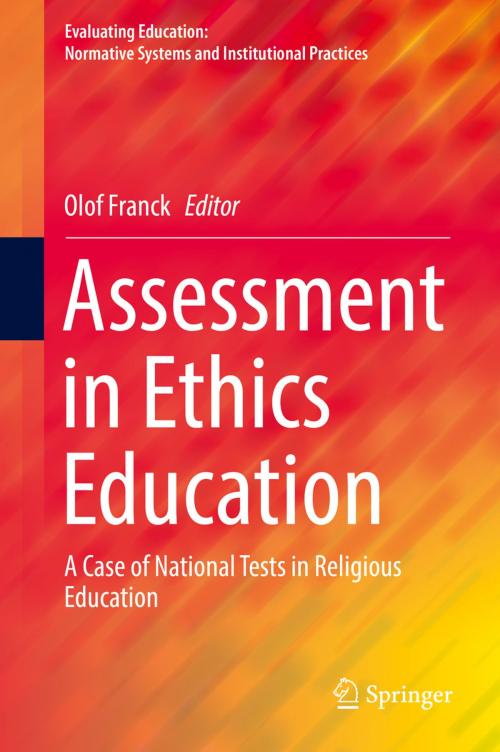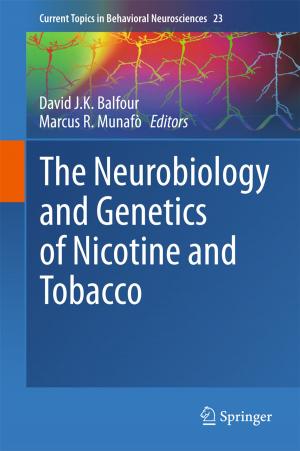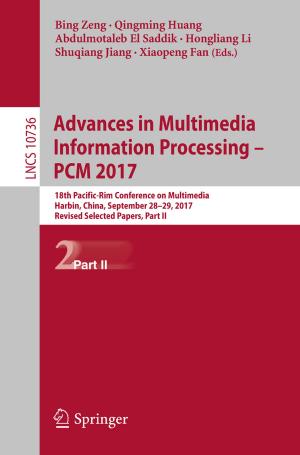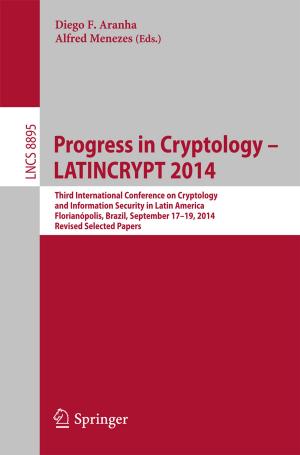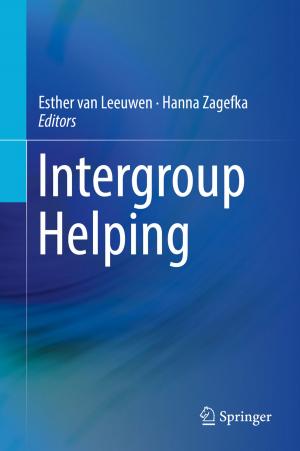Assessment in Ethics Education
A Case of National Tests in Religious Education
Nonfiction, Reference & Language, Education & Teaching, Educational Theory, Evaluation, Religion & Spirituality, Philosophy, Ethics & Moral Philosophy| Author: | ISBN: | 9783319507705 | |
| Publisher: | Springer International Publishing | Publication: | March 25, 2017 |
| Imprint: | Springer | Language: | English |
| Author: | |
| ISBN: | 9783319507705 |
| Publisher: | Springer International Publishing |
| Publication: | March 25, 2017 |
| Imprint: | Springer |
| Language: | English |
This book presents a number of fundamentally challenging perspectives that have been brought to the fore by the national tests on religious education (RE) in Sweden. It particularly focuses on the content under the heading Ethics. It is common knowledge that many teachers find these parts difficult to handle within RE. Further, ethics is a field that addresses a range of moral and existential issues that are not easily treated. Many of these issues may be said to belong to the philosophical context, in which “eternal questions” are gathered and reflected upon.
The first chapters highlight the concepts of ethical competence and critical thinking. In the following chapters the concept of ethical competence is analyzed with regard to teachers’ objectives and to students’ texts, respectively. These chapters pursue a more practice-related approach and highlight specific challenges identified from both teacher and student perspectives. Next, the book raises the issue of global responsibility. What kind of critical issues arise when handling such matters at school? Further, can contemporary moral philosophers contribute to such a discussion? In turn, the book discusses the role of statistical analyses with regard to national tests, while the closing chapters present international perspectives on the book’s main themes and concluding remarks.
The book’s critical yet constructive approach to issues regarding assessment in ethics education makes a valuable contribution to an ongoing debate among researchers as well as to the everyday communication on testing in schools and classrooms. As such, it will appeal to scholars in ethics education and researchers in the field of assessment, as well as educators and teachers interested and engaged in the task of testing ethics in school contexts where curricular demands for valid and authoritative evaluation may provide important guidelines, but may also pose challenges of their own.
This book presents a number of fundamentally challenging perspectives that have been brought to the fore by the national tests on religious education (RE) in Sweden. It particularly focuses on the content under the heading Ethics. It is common knowledge that many teachers find these parts difficult to handle within RE. Further, ethics is a field that addresses a range of moral and existential issues that are not easily treated. Many of these issues may be said to belong to the philosophical context, in which “eternal questions” are gathered and reflected upon.
The first chapters highlight the concepts of ethical competence and critical thinking. In the following chapters the concept of ethical competence is analyzed with regard to teachers’ objectives and to students’ texts, respectively. These chapters pursue a more practice-related approach and highlight specific challenges identified from both teacher and student perspectives. Next, the book raises the issue of global responsibility. What kind of critical issues arise when handling such matters at school? Further, can contemporary moral philosophers contribute to such a discussion? In turn, the book discusses the role of statistical analyses with regard to national tests, while the closing chapters present international perspectives on the book’s main themes and concluding remarks.
The book’s critical yet constructive approach to issues regarding assessment in ethics education makes a valuable contribution to an ongoing debate among researchers as well as to the everyday communication on testing in schools and classrooms. As such, it will appeal to scholars in ethics education and researchers in the field of assessment, as well as educators and teachers interested and engaged in the task of testing ethics in school contexts where curricular demands for valid and authoritative evaluation may provide important guidelines, but may also pose challenges of their own.
